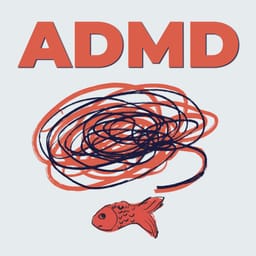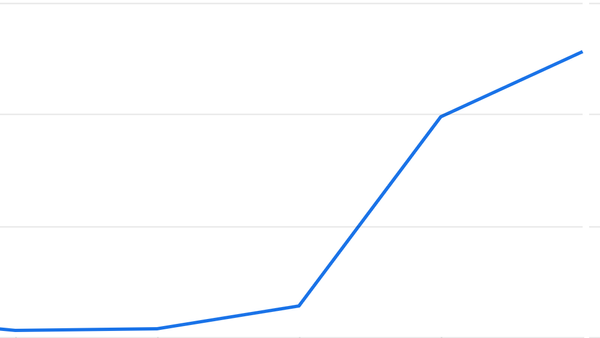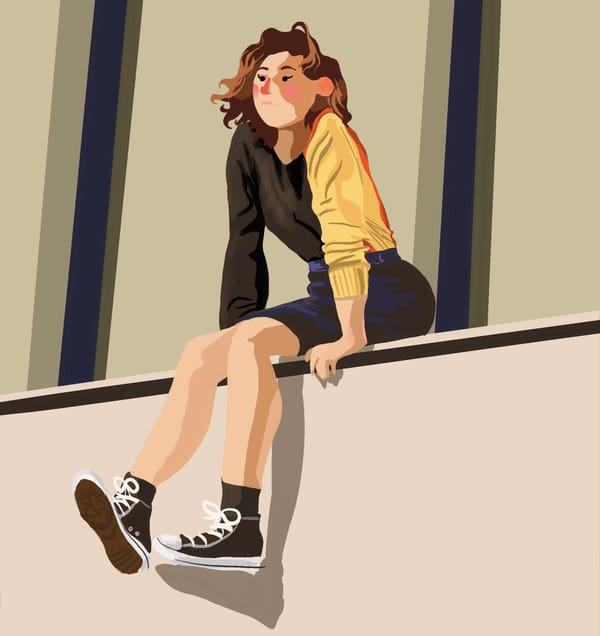The Peculiar Artifice of Conferences
Let’s Talk About Marketing Ourselves. My reflection on my very first time at a marketing conference.

This week, I’m in New York City for a tech conference, SaaSOpen. I’ve been invited as a speaker, and now that the first half of the two-day event draws to a close, I’d like to reflect on how my experience has felt so far.
What Happened?
I’m writing these words while alone in my hotel room at 7:00 pm, while my husband is at a dinner with a work friend and my calendar says that I’m at another dinner with some other speakers. Yet, I’m typing away on my keyboard in the company of only the heater’s consistent huffing and the array of fluorescent lights from all the office buildings in FiDi.
Let’s address the question on all of your minds: yes, I’m supposed to be at a dinner right now. No, I’m not showing up later. And no, nothing bad happened to deter me away from it.
I am not at that dinner because I reached my limit for how much social anxiety I could keep at bay in the artificial environment of a professional conference.
Since so many of you resonated with my previous anxiety-ridden confessions, you might also resonate with the flood of shame, embarrassment, and paralyzing fear that I have been feeling over the last couple of hours.
Becoming a Keynote Speaker
We Expect Too Much From Public Speaking
Conference speeches are a stressful affair.
You’re invited to speak at conferences in your capacity as an “expert” which comes with a dangerous cocktail of two assumptions:
1. You’re really good at what you do.
2. You’ll be able to propel your career forward by wowing everyone in attendance.
How could those expectations possibly NOT be anxiety inducing? Most of us never think that we are “experts” to begin with, and the pressure to advance our careers during a short speech and all the surrounding socializing is… crushing.
Here’s the truth: I’ve never spoken at a conference before today.
I’ve never even attended an in-person professional conference before. All of my experiences with these types of events have been online or fully unrelated to marketing (mostly some extremely awkward occasions of attempting to network at a variety of cocktail mixers over the years).
So, today was pretty freaking scary.
I Did Okay For My First Time
I knew my speech. I workshopped my topic, specific points, and even jokes with many kind marketers and friends over the past month. Likewise, I planned out the timing of my lines, designed unique graphics for my slides, and even gave full-blown practice presentations to the receptive audience made up of my husband, our cat, and one of our friends.
I wasn’t particularly worried about messing up my ideas or sounding stupid. Self-deprecation humor and explicit silliness are kind of my brand, so I was ready to play off any mishaps in my typical dorky fashion.
You can even see it all for yourself in this video recording of my talk:
My first ever conference talk in its full nervous glory.
In fact, I’d say that I succeeded, given that this was my post-talk LinkedIn post:
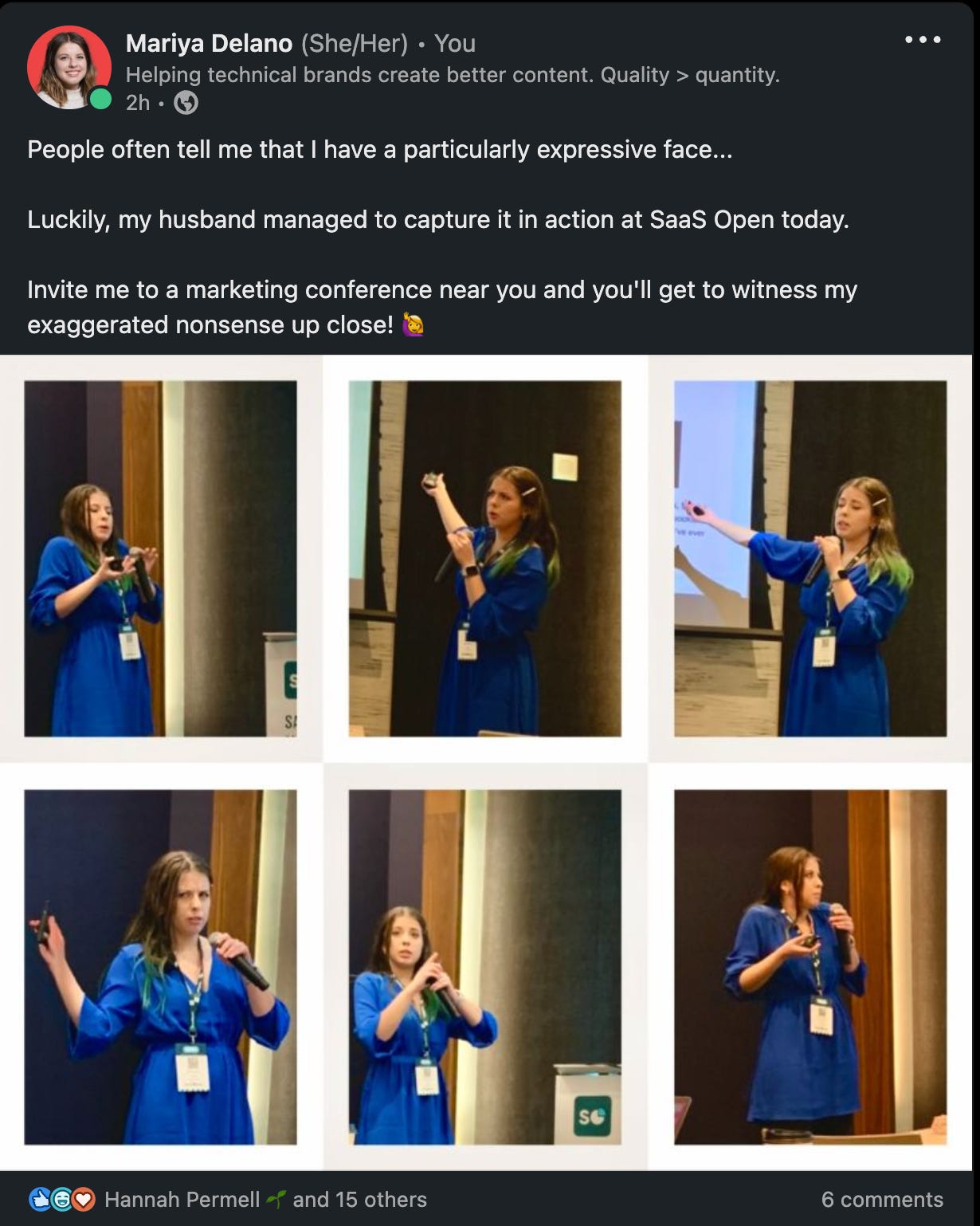
Many things went wrong:
- Our bus nearly tipped over on our way to the city
- I forgot to pack my dress and had to run into H&M at Columbus Circle 5 minutes before they closed
- My hair was not cooperating the entire time I spoke.
But I still presented. I delivered my jokes, I shared my shiny new frameworks, and I made myself seem like a crazy obsessed fangirl, all according to plan. (I also focused so much on not going over my 20-minute limit that I finished speaking 6 minutes too early, but that’s no biggie… right?)
Things Others Warned Me About… And Things They Didn’t Mention
Yet, the things that stick with me from that experience are not what I expected.
I’m not thinking of all the “professional opportunities” that I supposedly got by talking to a room at a conference center. (Although I will welcome them if they arise!) I’m not thinking about whether I seemed impressive enough. I’m not even wondering if I spoke to enough people in the hallways between talks.
No. I keep thinking about how much the whole affair felt like a school presentation.
Why does it have to be so stressful to hold a microphone and tell people about your work? Why does it feel like you’re being graded on some invisible rubric based on every word that comes out of your mouth and every design choice (or lack thereof) that went into your slides?
I watched multiple speakers take the stage today, and I was startled by how self-conscious every single person had seemed. Some of them were big names, others weren’t. All of them had done a lot of work in marketing & sales, and in every presentation there was something new for me to learn.
But I wasn’t really learning.
Instead, I was focused on the way everyone dressed. I worried if I put on too much makeup and if my obvious eyeliner would make people think of unflattering stereotypes often associated with Ukrainian women. I observed how many people in the audience were checking their email or texting someone on their phones.
When I spoke, the room was only half-full. But I was grateful for it because nobody was touching their laptop. And the only phones that I could see were taking pictures of my slides. I was so goddamn relieved that at least people were paying attention.
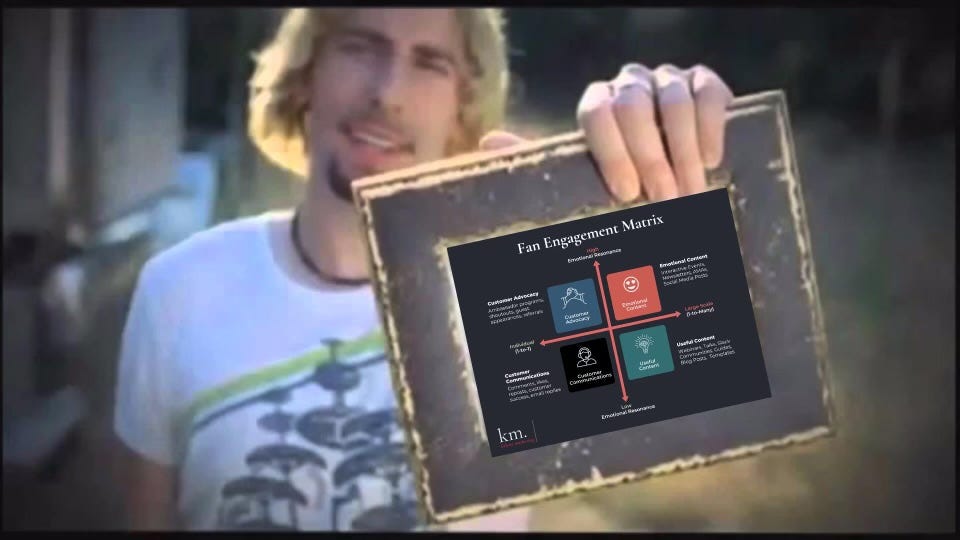
Why does this have to be so stressful?
Why did I have to worry about anybody opening the door to slip away to the bathroom? Whenever that happened for previous speakers, the noise of chatter from the outside would drown out their voices. I had to fight against my ADHD not to keep turning around and trying to figure out what all those people outside were saying.
Some other speakers seemed so nervous that I couldn’t pay attention to what they were saying. I wouldn’t be surprised if some members of my audience felt the same way about me. And I don’t blame any speakers for getting anxious!
We expect so much from these public events that the only way to meet those expectations is to fumble through them while pretending we’re fine, or to do the same rodeo enough times that the artifice no longer bothers us.
Some Social Gatherings Are Too Scary
So now, let’s get back to that dinner.
I Chickened Out of the Speakers’ Dinner
Here are the facts:
- I was invited to a speakers' dinner with 19 other people.
- I was also informed by some marketing friends that going to speaker dinners is crucial if I hope to get invited to speak at future conferences.
- My husband scheduled to meet with one of his friends at another restaurant nearby at the same time.
- When my husband walked me to my dinner’s location, I saw some other speakers and panicked.
- In my panic, I insisted on walking my husband to his restaurant first instead.
- Once my husband departed, I stood awkwardly and stared at my phone for 10 minutes.
- Since my panic did not subside, I turned around and walked back to the hotel.
So… what happened?
Am I a socially anxious mess who is now writing a 2,000+ word essay to justify my fears? (Well… yes, but that’s how I write all of these essays.)
Instead, my panic today is representative of a larger trend with how I think about overly structured and artificially constructed social gatherings.
Getting Over Our Fears Is Overrated
The more pressure I feel to “make the most” out of any social event, the more I feel every cell in my body shouting in protest.
How can one possibly find friends in a dollhouse where the very premise of that event feels intent on pushing all the dolls together to make them “kiss”?
I remember many occasions of standing in front of some social gathering that I’ve been technically invited to as part of some larger group, and waiting... always waiting for around 10 minutes, until everyone else has clearly walked by and my tardiness is no longer casual. And then, unless I receive a serendipitous text asking me where I am or someone notices me and walks out to invite me in… I always leave.
I leave and walk away, speeding up my pace to prevent my brain from convincing me to try again and to remove any possibility of someone still catching me.
Because now I’m no longer on the precipice. I’ve remembered that I’m scared of heights, and I’ve decided to make the slow and humiliating climb back down.
Whenever I do this, I find a part of my brain shouting at me to turn around. Why can’t I just push myself? Why can’t I get over it? After all, it won’t be scary anymore once I jump and all that adrenalin rushes into my bloodstream.
But I have made the jump. I’ve been pushed off cliffs into the water on multiple occasions. And while I’ve proven to myself that the jump wouldn’t kill me, and the cold water caressing my skin was pleasant… I never got over my fear of heights. And I never felt like the stress of forcing myself to jump was worth it.
Because the jump itself was always simply stressful.
I don’t understand why others enjoy that process. I guess they find it… liberating? But I don’t understand it because whenever I have jumped from a cliff I’ve always found myself thinking: “I was already swimming in the same water before I climbed up.”
I’m not arguing that you should never face your fears. I am simply asking you to consider that to overcome any fear, you need to accept a certain level of suffering. At what point does the relief from taking that plunge justify the pain required to get there?
Childhood Chocolate Competitions & Social Anxiety
When I was 6 years old, my mother took me to the opening of this new playground in my hometown of Zhytomyr. The playground was built by a big candy manufacturer, Roshen, which meant that at the opening they were running little competitions and giving out gift bags of chocolates.
As we approached, I saw all the kids running around, careening down the shiny new slides, giggling on the monkey bars, and splattering mud all over their smiling faces. I also heard the announcer’s voice naming the children who won the latest round of prizes.
I saw all of those kids and I felt my own tiny body freeze. I didn’t know anyone there. Not only that, but I didn’t live in that area of the city, so I’d probably never see any of those kids again. And I didn’t even like competitions or know how to climb on the monkey bars!
I simply wanted candy. But I wasn’t willing to pay that high of a price for it.
So, my mother sat down with me, right next to the playground. She figured that after watching all the other children have fun for a while, I’ll get over it and join in. I think the announcer even tried to wave me over.
But I didn’t get over it.
I sat there, watching all the kids win prizes, get chocolate stains on their lips, and throw the wrappers on the ground. I sat there together with my mom, who was clearly wondering how she ended up with the one defective child, and I didn’t join in.
The funny part is… even though I was sad that I didn’t get the candy, I wasn’t sad about sitting out that event.
I didn’t care that I didn’t make any new friends. I didn’t particularly want to because I knew that if I forced myself to enter that playground… I would be miserable.
Why I Don’t Force Myself To Push Past The Panic
In the years since, I’ve often forgotten that lesson.
I have forced myself to join in awkward get-togethers, sports competitions, cocktail parties, and large dinners. And whenever I did push myself to go past that threshold, I felt the same way as when I forced myself to jump from a cliff. Sure, the fear was gone. But I didn’t know if I gained anything by pushing past it.
Do I wish that I could become the type of person who enjoys the rush of falling towards the water from a safe height? Of course. I also wish I was the type of person who could enjoy a large dinner with people who I mostly don’t know.
But I’m not that person. And pretending like I am never worked.
I am not at my best at any social event that I force myself to go to. If I feel a paralyzing amount of fear when looking at a group of people who I’m supposed to join… I know I won’t be pleasant company for any of them. I will sit in silence, unable to think of a single thing to say, or I will get roaring drunk to the point of being obnoxious. It’s better to spare the organizers at least a portion of that dinner bill.
Not All Social Interactions Are The Same
Maybe I’m wrong, but I doubt that this anxiety makes me a worse person. Or a less competent marketer. Or even an inferior speaker.
I enjoy the stage! I had a great time giving my speech, and I am excited to lead some small group sessions back at the conference tomorrow.
But I don’t enjoy the small talk peppered in with just the right dose of promotional facts to make others think that I’m important.
I don’t enjoy the artifice of having to pick a table to sit at for lunch, awkwardly shuffling towards the least threatening group of strangers and quietly asking “can I sit here?”, before proceeding to stare at my plate and not say a single word.
I don’t enjoy the process of going to a dinner where I am desperately hoping to see one of the three familiar faces that I am not scared of, before ending up on the opposite side of the table and not getting to talk to any of them.
I do enjoy structured conversation about a specific topic. I enjoy presenting and listening to others present. I enjoy the beautiful feeling of a mutual spark with a fellow awkward soul who also got tired of acting like they would rather not hide back in their hotel room and watch videos in bed.
I always made friends with the misfits. So, why am I acting like that’s no longer true?
Some Of Us Aren’t Extroverts… And That’s Okay
One of the reasons I love marketing so much is because our field is full of misfits.
I’ve never seen so many professionals in one sphere so openly discuss awkwardness, social anxiety, introversion, and not fitting in growing up. We like hiding in written chats and asynchronous email chains. We like reading books and watching long webinars. We like showing off our cats and dogs on social media. And, possibly most refreshing of all, most of us aren’t the biggest fans of wearing real pants.
I’ve made phenomenal friends in the marketing world, and I’ve met lovely people, some of whom were, in fact, at that conference!
And if I was going to dinner with only them… I would have probably sprinted to the restaurant, excited to share all the talks we’ve seen and all the funny mishaps that happened during our long day. But when I think that most people at a dinner will be tripping over themselves to avoid looking silly… I won’t fit in.
And I don’t want to pretend to fit in anymore. So if you invite me to speak at a marketing-related conference, I will be happy to join (seriously, I promise!). Conferences are a lot of fun. But… (pretty please) don’t make me eat food with strangers! I’ll make friends in my own awkward way just fine.
Follow-Up from The Future
Since this post was written, I've spoken at 2 more conferences and written about those experiences as well. Here are the links to those essays:
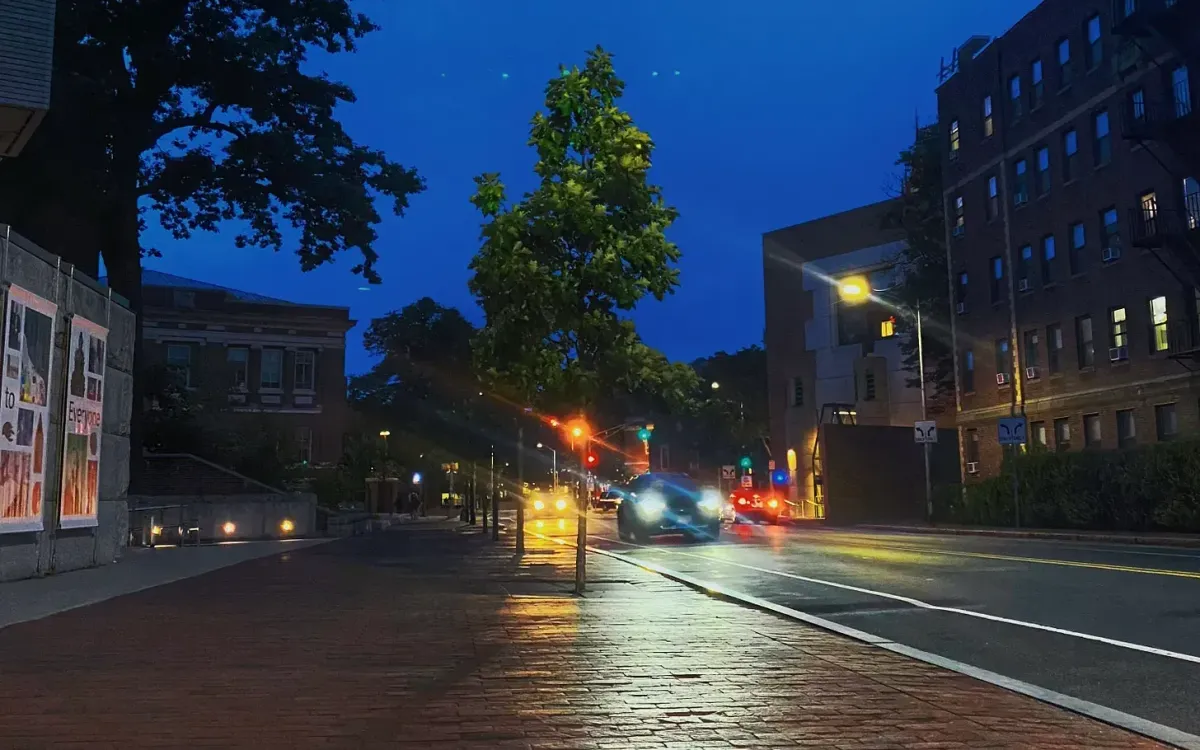
Reflections from my time at B2BSMX in Boston (August 2023)
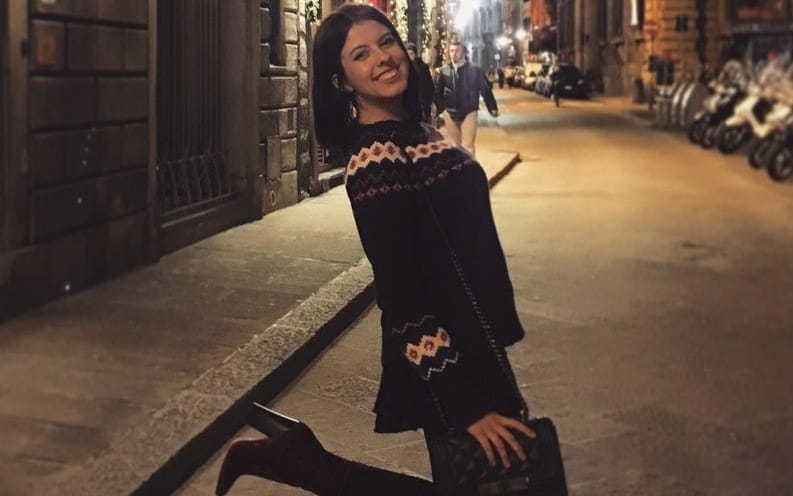
Reflections from my time at Ascent and HOTSAUCE in NYC (November 2023)
Top 3 Reading Recommendations
All of our recommendations are on the theme of public speaking today:
- “A Crash Course in Speaking at Conferences” by Amanda Natividad. I don’t know how I could have prepared for today without Amanda’s wonderful advice.
- “Demystifying Public Speaking” by Lara Hogan. This is an entire book that Lara generously made available for free. I’ve only had time to read certain bits and pieces, but everything in here is incredible.
- “5 Slide Slip-Ups To Avoid” by Cole Nussbaumer Knaflic. A bit of advice on how to design your slides to accompany your talk.
Audience Research Corner
According to SparkToro’s Audience Tracking data for people who follow Content Marketing Institute on social media, many marketers have been traveling lately:
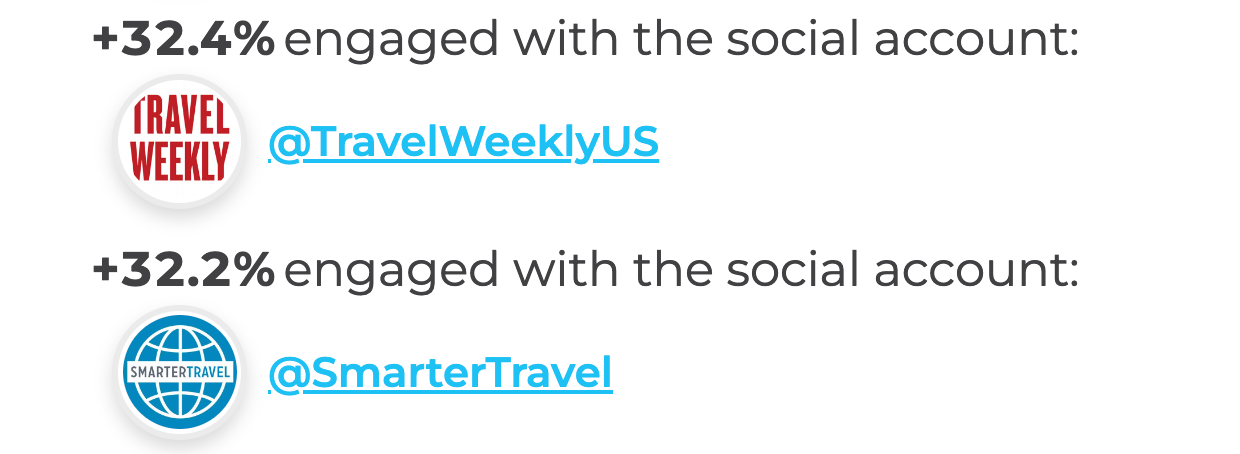
Could do with all these conferences happening in March, perhaps? (Or everyone is sick of working, which is also valid).
Musical Minute
“Sunlight” by Hozier.
Something about Hozier’s voice has always felt haunting in the most beautiful way. This particular song has been my favorite in the past two weeks.


